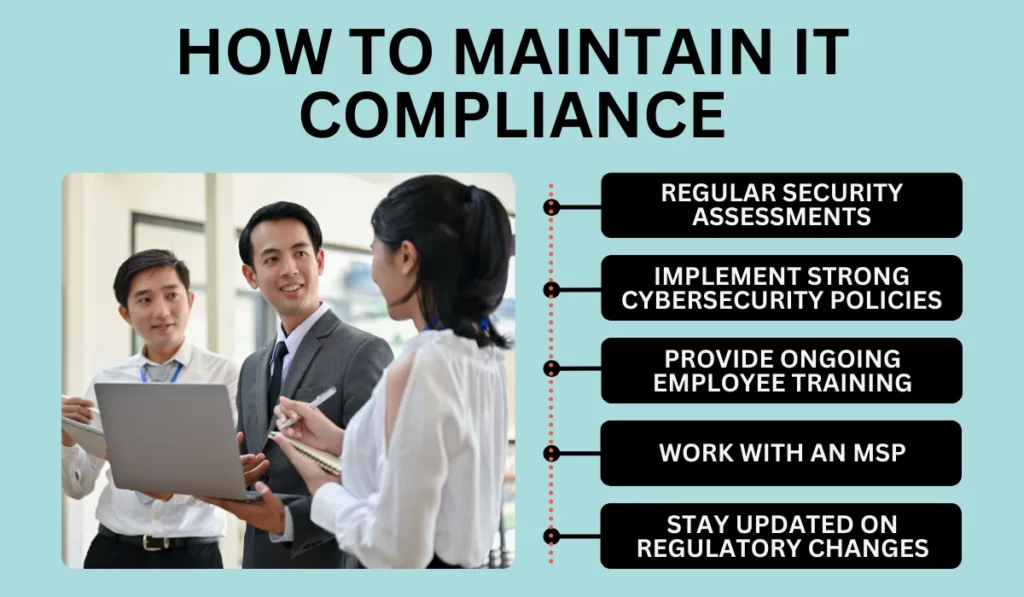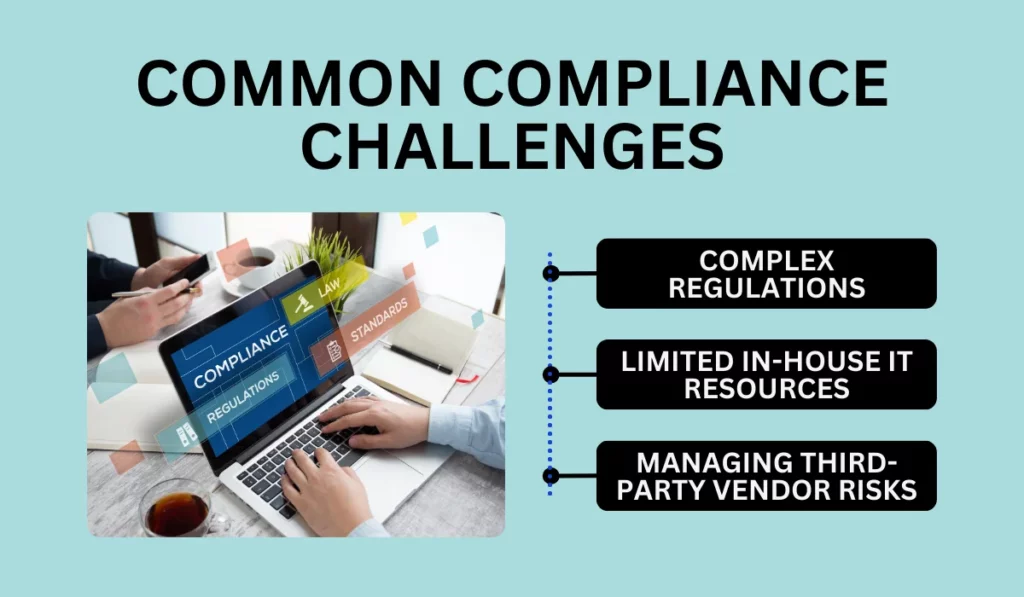IT Compliance
What is SOC 2?
Elmo Taddeo

Government contracts come with high stakes. Cyberattacks and data breaches aren’t distant threats—they are pressing realities. Handling sensitive government data means strict compliance with security regulations.
Without it, your business risks contract termination, hefty fines, and public data breaches—problems that have plagued 35% of the top 100 contractors. The stakes are higher than ever, but you can mitigate these risks with the proper standards and strategies.
Let’s explore the essential compliance requirements you need to know—and how they can protect your business from risk.
Federal agencies enforce strict security controls to protect classified and sensitive data. For contractors, non-compliance can lead to terminated contracts, legal consequences, and reputational damage.
With the federal government stepping up enforcement of regulatory requirements—through bodies like the Office of Management and Budget and the Department of Defense —ignoring your security policies is no longer an option.
Meeting official compliance requirements is more than a checkbox; it safeguards against devastating data breaches that can jeopardize national security and your business.
FISMA mandates strict cybersecurity standards for federal agencies, IT service providers, and contractors handling government data. Compliance requires a documented security program, adherence to Office of Management and Budget (OMB) guidelines, and regular security assessments to detect vulnerabilities and mitigate emerging threats.
NIST provides a cybersecurity framework for government contractors, financial institutions, and technology providers to prevent, detect, and respond to threats. Businesses must implement access controls, encryption, and continuous risk monitoring while regularly updating security measures to address evolving cyber threats.
CMMC is a mandatory certification for Department of Defense (DoD) contractors working with controlled unclassified information (CUI). Defense, aerospace, and manufacturing companies must undergo third-party security assessments to verify compliance with DoD cybersecurity standards, covering areas like incident response, access management, and asset protection. Without CMMC certification, businesses cannot secure DoD contracts.
ITAR governs the handling of defense-related technology, military exports, and sensitive technical data for aerospace, defense contracting, and engineering businesses.
Compliance requires registration with the U.S. Department of State, strict access controls to prevent unauthorized disclosures, and regular audits to ensure adherence to national security regulations. Violations can result in severe penalties, including fines and export restrictions.
HIPAA applies to government contractors, healthcare providers, and vendors handling protected health information (PHI). To ensure compliance, businesses must enforce secure data storage and transmission, implement restricted access controls, and provide ongoing employee training to prevent breaches. Non-compliance can lead to substantial fines, reputational damage, and contract loss.

Conduct periodic assessments to identify where you stand on compliance requirements. Tools like FedRAMP guidelines and NIST checklists can pinpoint vulnerabilities in your information systems.
Develop security policies that align with each relevant standard—FISMA, CMMC, HIPAA, and others. These policies should cover everything from password protocols to patch management.
Human error often leads to data breaches. Regular training ensures your team recognizes phishing attempts, follows secure handling procedures for sensitive information, and understands the latest security requirements.
Considering the complexity of these frameworks—CMMC, FISMA, PCI DSS, GDPR, and so on—partnering with providers specializing in regulatory compliance can be a game-changer. An MSP helps manage patch updates, risk assessments, and compliance initiatives.
The federal government frequently revises rules to address emerging threats. Keep an eye on the Office of Management and Budget, the official website of your contracting agency, and GSA bulletins to stay ahead of any shifts in compliance standards.

Government contractors must navigate overlapping regulations like SOX, CCPA, and GDPR, making compliance a moving target. A dedicated compliance officer or team should track regulatory updates, consult official resources, and ensure adherence to evolving requirements.
Many contractors lack the internal staff to manage compliance across multiple frameworks, such as PCI DSS and HIPAA. To bridge the gap, businesses can outsource specialized tasks such as vulnerability scanning and system maintenance, reducing strain on internal teams.
Outsourcing adds security risks if vendors fail to meet compliance standards. Contractors should enforce vendor risk management policies, requiring third parties to prove compliance with FedRAMP, CMMC, or other relevant frameworks before accessing sensitive systems.
Parachute supports government contractors in aligning their information security posture with FISMA, NIST, CMMC, and other compliance standards. Our team assists with everything from routine assessments to advanced risk management strategies, ensuring you stay compliant with federal government websites and Department of Defense directives.
Whether it’s risk assessment, 24/7 monitoring, or regulatory training, we deliver scalable solutions for your business. Secure your next contract with confidence—contact us today.